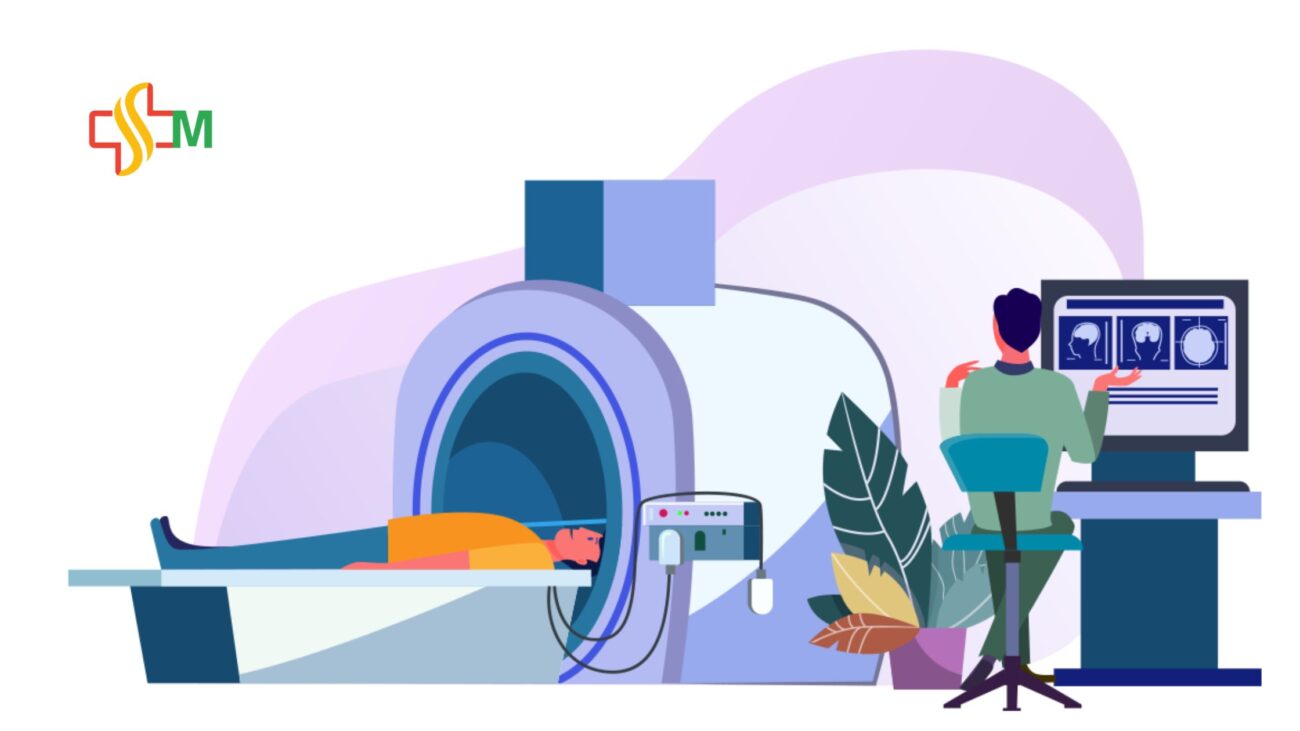BLOG
Immunomodulatory Drugs: Their Benefits and Side Effects

In today’s medical landscape, immunomodulatory drugs are at the forefront of treatments for various chronic and autoimmune conditions. These drugs have the unique ability to modify the immune system's response, either by boosting or suppressing it, depending on the condition being treated. But like any powerful tool, they come with their own set of benefits and potential side effects. Let’s dive into the world of immunomodulatory drugs and explore what makes them so essential, and why they need to be handled with care.
What Are Immunomodulatory Drugs?
Immunomodulatory drugs (IMiDs) are a class of medications designed to regulate or normalize the immune system. They play a critical role in the treatment of diseases where the immune system is either underactive, as in infections and cancers, or overactive, as in autoimmune disorders like rheumatoid arthritis, lupus, and multiple sclerosis.
The immune system is a complex network of cells, tissues, and organs that work together to defend the body against harmful invaders. In some cases, however, this system becomes unbalanced, either attacking the body's own tissues or failing to respond adequately to threats. This is where immunomodulatory drugs come into play—they help to restore balance by either stimulating or suppressing the immune response.
How Do Immunomodulatory Drugs Work?
The primary function of immunomodulatory drugs is to alter the immune system’s activity. There are two main types of immunomodulatory drugs:
- Immunosuppressants: These drugs reduce or suppress the strength of the body’s immune response. They are commonly used in autoimmune diseases and after organ transplants to prevent the body from rejecting the new organ.
- Immunostimulants: These drugs boost or stimulate the immune response. They are often used in cases of immunodeficiency or chronic infections, where the body needs extra help to fight off disease.
Some drugs, like Thalidomide and Lenalidomide, work by modulating the immune system to treat cancer. They inhibit the growth of cancer cells and stimulate immune cells to attack tumors.
Benefits of Immunomodulatory Drugs
Immunomodulatory drugs have revolutionized the treatment of many chronic and life-threatening conditions. Some of their benefits include:
- Effective Treatment for Autoimmune Diseases: For conditions like rheumatoid arthritis and multiple sclerosis, these drugs can reduce inflammation, slow disease progression, and improve quality of life.
- Prevention of Organ Rejection: After an organ transplant, the immune system might attack the new organ, mistaking it for a harmful invader. Immunosuppressants help to prevent this rejection, allowing the transplanted organ to function properly.
- Cancer Treatment: Certain immunomodulatory drugs are effective in treating cancers like multiple myeloma by hindering the growth of cancer cells and enhancing the body’s immune response to them.
- Control of Chronic Infections: In cases where the immune system is weakened, immunostimulants can help the body to fight off infections that could otherwise become severe.
Immunomodulatory Drugs of Side Effects
While immunomodulatory drugs can be life-saving, they are not without their risks. The very nature of these drugs—modifying the immune system—means that there can be significant side effects, especially when the balance of the immune system is altered too much in one direction.
Here are some common side effects associated with immunomodulatory drugs:
1. Increased Risk of Infections
Immunosuppressants, by dampening the immune response, can leave the body vulnerable to infections. Common infections include respiratory infections, urinary tract infections, and, in severe cases, opportunistic infections like tuberculosis and fungal infections that the body would typically be able to fend off.
2. Blood Disorders
Certain immunomodulatory drugs can affect the production of blood cells. For example, they may cause a decrease in white blood cells (leading to increased infection risk), red blood cells (causing anemia), or platelets (leading to bleeding issues). Regular blood tests are often required to monitor these effects.
3. Gastrointestinal Issues
Nausea, vomiting, diarrhea, and constipation are common side effects of many immunomodulatory drugs. These gastrointestinal symptoms can sometimes be managed with dietary changes or additional medications.
4. Liver and Kidney Toxicity
Prolonged use of some immunomodulatory drugs can lead to liver or kidney damage. Monitoring liver and kidney function through regular blood tests is essential to catch any signs of toxicity early.
5. Neurological Effects
Some immunomodulatory drugs, particularly those used in cancer treatment, can cause neurological side effects like peripheral neuropathy (nerve damage) that results in tingling, numbness, or pain in the hands and feet.
6. Increased Risk of Cancer
Ironically, while some immunomodulatory drugs are used to treat cancer, others, particularly long-term use of immunosuppressants, have been associated with an increased risk of certain cancers, like skin cancer and lymphoma. This risk is thought to arise because the immune system’s natural ability to detect and destroy cancer cells is reduced.
Balancing the Benefits and Risks
The use of immunomodulatory drugs requires a careful balance between managing the disease and minimizing side effects. This balance is achieved through careful dosing, monitoring, and sometimes the use of additional medications to counteract side effects.
Patients on these drugs should work closely with their healthcare providers to monitor for side effects and adjust treatment as necessary. Regular blood tests, imaging studies, and other monitoring tools are essential to ensure that the drugs are doing more good than harm.
Final Thoughts
Immunomodulatory drugs have transformed the treatment of many chronic and severe diseases, offering hope and improved quality of life to millions of people. However, their powerful effects on the immune system mean that they must be used with caution. Understanding the potential side effects and working closely with healthcare providers can help to maximize the benefits while minimizing the risks, allowing patients to live healthier, more fulfilling lives.
Frequently Asked Questions (FAQ) about Immunomodulatory Drugs
1. What are immunomodulatory drugs used for?
Immunomodulatory drugs are used to regulate the immune system's activity. They can either suppress or stimulate immune responses, depending on the condition being treated. Here are some common uses:
- Autoimmune Diseases: Drugs like corticosteroids and methotrexate are used to manage conditions where the immune system attacks the body’s own tissues, such as rheumatoid arthritis and lupus.
- Organ Transplants: Immunosuppressants are used to prevent the body from rejecting a transplanted organ.
- Cancer Treatment: Certain drugs, such as Thalidomide and Lenalidomide, help treat cancers like multiple myeloma by targeting cancer cells and enhancing immune response.
- Chronic Infections: Immunostimulants can boost the immune system in cases of chronic infections or immunodeficiency.
2. What are the common side effects of immunomodulatory drugs?
Immunomodulatory drugs can have various side effects, which can vary depending on the specific drug and its mechanism of action. Common side effects include:
- Increased Risk of Infections: Due to the suppression of the immune system, there is a higher risk of infections.
- Blood Disorders: Some drugs may affect blood cell counts, leading to issues like anemia, increased bleeding, or a higher risk of infection.
- Gastrointestinal Issues: Nausea, vomiting, diarrhea, and constipation are common.
- Liver and Kidney Toxicity: Long-term use can potentially harm the liver or kidneys.
- Neurological Effects: Some drugs can cause nerve damage, leading to symptoms like tingling or numbness.
- Increased Risk of Cancer: Long-term use of some immunosuppressants may increase the risk of certain cancers.
3. How are side effects managed when taking immunomodulatory drugs?
Managing side effects involves a combination of strategies:
- Regular Monitoring: Routine blood tests, liver and kidney function tests, and other evaluations help detect side effects early.
- Adjusting Dosage: Sometimes, adjusting the dose or frequency of the medication can help minimize side effects.
- Supporting Medications: Additional medications may be prescribed to manage specific side effects, such as anti-nausea drugs for gastrointestinal issues.
- Lifestyle Changes: Dietary adjustments, hydration, and other lifestyle changes can help manage side effects like gastrointestinal discomfort.
- Consulting Healthcare Providers: Regular consultations with healthcare providers ensure that side effects are addressed promptly and treatment is adjusted as needed.
related product
-
 Augplat 500mg Injection
Augplat 500mg Injection
₹5,995.00Original price was: ₹5,995.00.₹4,200.00Current price is: ₹4,200.00. -
 Augplat 250mg Injection
Augplat 250mg Injection
₹3,395.00Original price was: ₹3,395.00.₹2,450.00Current price is: ₹2,450.00.
How Technology is Shaping the Future of Cancer Diagnosis
-
Posted by
admin
- 0 comments
The Psychological Impact of a Cancer Diagnosis
-
Posted by
admin
- 0 comments
Overcoming Financial Challenges Associated with Cancer Treatment
-
Posted by
admin
- 0 comments
Oral Cancer: Causes, Symptoms & Treatment
-
Posted by
admin
- 0 comments
Top 5 Cancer Hospitals in Meghalaya
-
Posted by
admin
- 0 comments
Chemotherapy for Breast Cancer
-
Posted by
admin
- 0 comments
How to Access Experimental Cancer Drugs Through Clinical Trials
-
Posted by
admin
- 0 comments
How Antioxidants Can Help in Cancer Prevention
-
Posted by
admin
- 0 comments
Top 5 Cancer Hospitals in Mumbai
-
Posted by
admin
- 0 comments
Understanding Cancer Staging: What It Means for Treatment Options
-
Posted by
admin
- 0 comments
Colorectal Cancer: Causes, Symptoms & Treatment
-
Posted by
admin
- 0 comments
Lung Cancer Causes Symptoms & Treatment
-
Posted by
admin
- 0 comments













